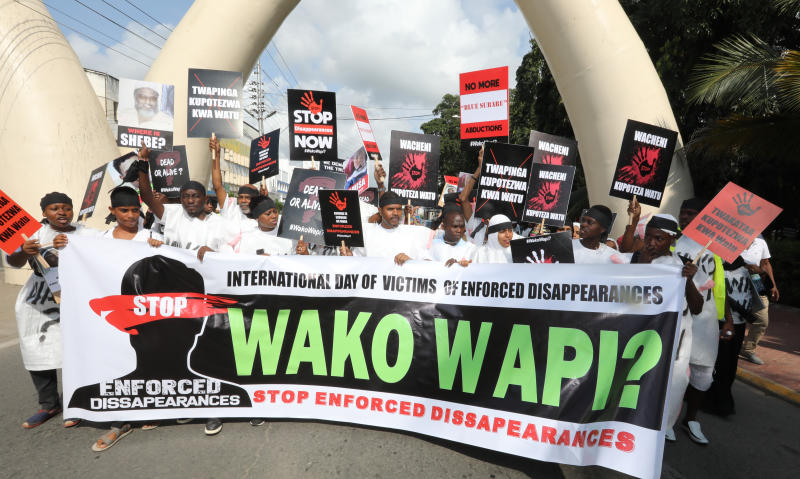
The International Day of the Victims of Enforced Disappearances was marked yesterday. In observing this day, focus normally goes to the excesses of police officers in the arrest and murder of individuals in unclear circumstances. Like other countries, especially on the African continent, Kenya is grappling with this problem that seems to have escalated in recent years.
Forced disappearances take on the form of abductions and extra-judicial killings. On many occasions, people have raised complaints against police officers or people in police uniform for arresting or abducting their relatives, never to be seen again. In some cases, those who fall victim are murdered and their bodies dumped in forests or even rivers.